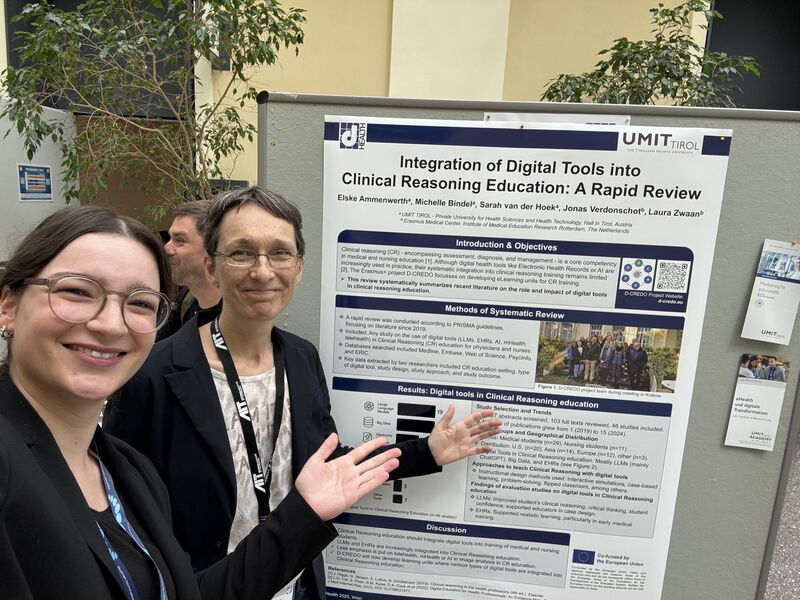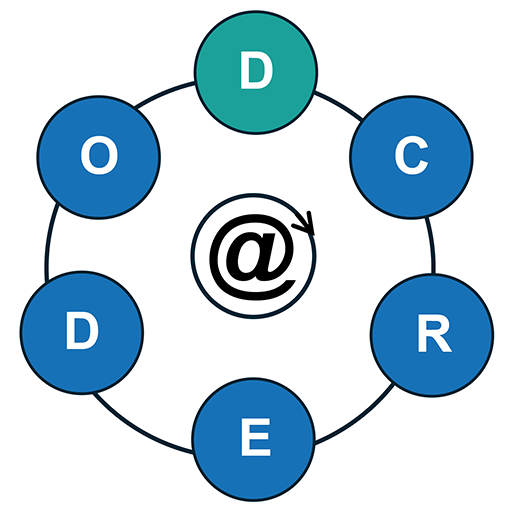As part of our ongoing efforts with the D-CREDO project, we had the privilege of attending the dHealth Conference, where we presented a poster on our research into the integration of digital health tools in clinical reasoning education for both medical and nursing students.
The dHealth Conference has been a key event in Austria for nearly two decades, gathering more than 300 participants from a diverse range of sectors – academia, industry, government, and healthcare organizations. The conference’s theme, “Health Informatics Meets Digital Health,” underscores the convergence of cutting-edge research and practical applications aimed at improving the quality and efficiency of healthcare systems. For us, it was an exciting opportunity to engage with professionals who are shaping the future of healthcare through technology, and to share insights from the D-CREDO project. As a platform for both research and application, the conference provided a space for rich discussions between researchers, practitioners, decision-makers, and vendors.


The poster we presented at the conference outlined our findings from the rapid review, conducted in the first months of the project:
The integration of digital health tools into clinical practice presents important opportunities to enhance clinical reasoning, yet many healthcare professionals are not sufficiently prepared to use these tools effectively. We aimed to explore how digital tools—such as artificial intelligence (AI), telehealth, electronic health records (EHRs), and clinical decision support systems (CDSS)—are currently being integrated into clinical reasoning education for medical and nursing students. To do this, we conducted a rapid review of 46 studies. The results showed that most educational initiatives focus on large language models, EHRs, and CDSS, which are being used to support learning through case simulations, decision-making support, and data interpretation. While these tools are promising in helping students develop essential reasoning skills, their use in education is still limited in scope. The findings suggest a need for more diverse and comprehensive integration of digital tools into clinical reasoning curricula, as well as increased support for educators in adopting and teaching with these technologies.
If you are intersted in more details from the rapid review, check out our Deliverable 2.1 Literature review report as well as the Results section of our website.


We look forward to continuing our work in this space and to engage with the broader health informatics and digital health community to further improve clinical reasoning education for the next generation of healthcare providers.
Find the poster here and if you want to stay up to date on the D-CREDO project follow us on LinkedIn to stay in touch!





